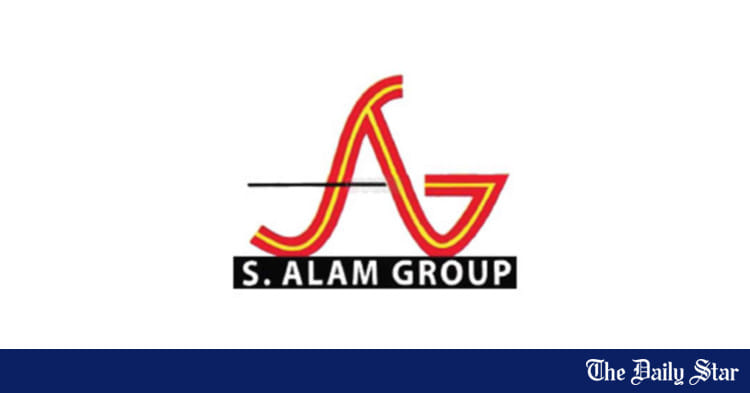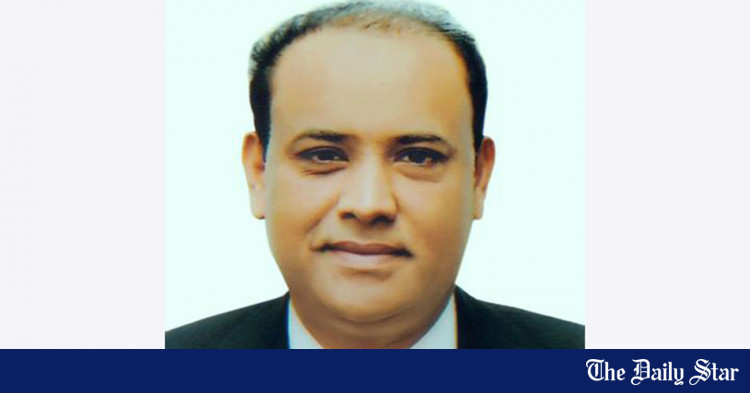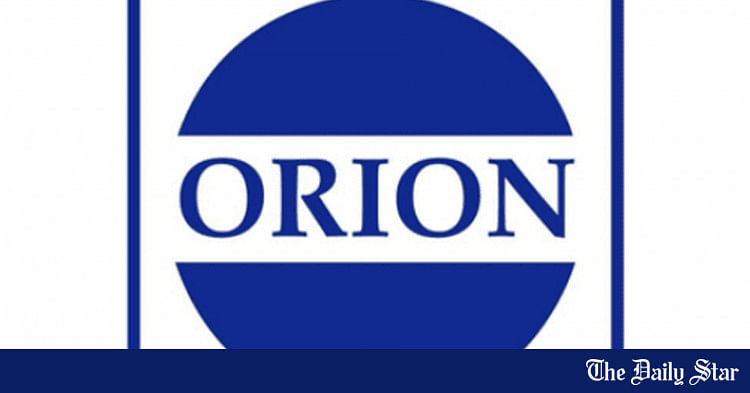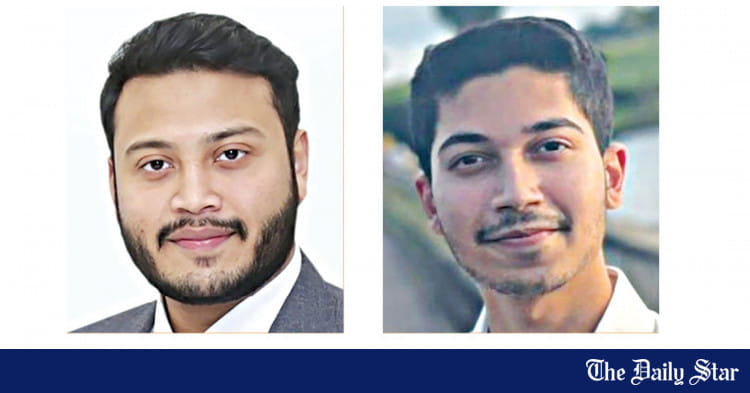- Copy to clipboard
- Thread starter
- #41
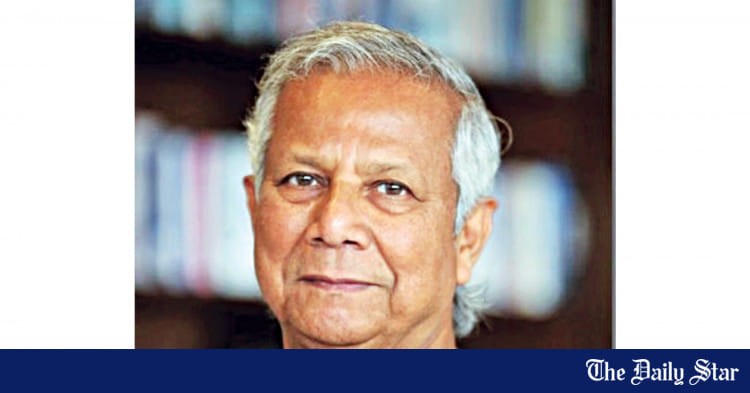
Past govt fuelled inflation by printing Tk 60,000cr: Yunus
People are grappling with high inflation because of the fresh injection of Tk 60,000 crore into the market by Sheikh Hasina’s government, Prof Muhammad Yunus, chief adviser to the interim government, said yesterday.
Past govt fuelled inflation by printing Tk 60,000cr: Yunus

People are grappling with high inflation because of the fresh injection of Tk 60,000 crore into the market by Sheikh Hasina's government, Prof Muhammad Yunus, chief adviser to the interim government, said yesterday.
"One of the main goals of the interim government is to contain the unprecedented inflation," he said in a televised speech to the nation.
The chief adviser's comments came after inflation eased in August but remained at over 10 percent, reflecting that higher prices of goods and services are continuing to eat away at the purchasing power of consumers.
The inflation rate in Bangladesh has hovered above 9 percent since March 2023.
Last month, the Consumer Price Index (CPI), which measures changes in the prices paid by consumers over time, stood at 10.49 percent, according to data released by the Bangladesh Bureau of Statistics (BBS).
Yunus, who was sworn in after the Awami League government was toppled by a mass uprising on August 5, said the past 'fascist' government printed additional currency and released it into the market with the intention of 'looting'.
He added that the Bangladesh Bank had already hiked the policy rate to 9 percent to combat inflation.
"Distribution of essential commodities at fair prices through open market sales and food-friendly programmes are ongoing to cushion common people from inflation," he said.
The government has allocated Tk 5,800 crore to import rice and wheat. It has also allocated Tk 8,900 crore for domestic procurement of grains.
It also allocated Tk 7,360 crore in the current fiscal year to provide food subsidies to poor and low-income people under three programmes.
He said the central bank has made the exchange rate market-based to curb the volatility.
Yunus further said his government has cancelled the unethical provision to legalise black money. The previous government offered a unique amnesty that allowed anyone to whiten illegal gains without scrutiny by paying a 15 percent tax on assets, including cash, securities, deposits, financial schemes and instruments.
However, the interim government did not cancel the amnesty to whiten black money in case of investment in real estate -- flats, buildings and land -- on payment of a specific amount of tax depending on the size and location of the properties.
Yunus added that the government has also sought budgetary support from various development partners in order to bolster foreign exchange reserves.
It has sought an additional $3 billion from the International Monetary Fund, $1 billion from the World Bank, and $1 billion from the Japan International Cooperation Agency.
"Discussions with Russia are ongoing regarding advance payments for the construction of the Rooppur Nuclear Power Plant and clearing the dues," he said.
Yunus also said his government has taken the initiative to rationally cut operating and development spending to contain pressure on state coffers.
He added that extravagant projects were taken under the 'authoritarian' Hasina government.
"We have already started the process of reviewing all ongoing and proposed development projects. Depending on the stage of implementation, we will consider cutting spending. If necessary, we will cancel those."
Yunus, who won the Nobel Peace Prize in 2006, said the interim government would put an end to looting in the name of mega-projects and planned to increase allocations for the health and education sectors.
He said the government requested both Russia and China to reduce the interest rates of loans and extend the maturity period.
Moreover, the government has directed relevant agencies to publish actual data of economic indicators.
"We have taken steps to recover looted and laundered money," he said, adding that the government is going to form a banking commission to restore discipline to the financial sector.
"The boards of various banks have been restructured. Huge changes have taken place in the banking sector within a month. You must have noticed that."
People are grappling with high inflation because of the fresh injection of Tk 60,000 crore into the market by Sheikh Hasina's government, Prof Muhammad Yunus, chief adviser to the interim government, said yesterday.
"One of the main goals of the interim government is to contain the unprecedented inflation," he said in a televised speech to the nation.
The chief adviser's comments came after inflation eased in August but remained at over 10 percent, reflecting that higher prices of goods and services are continuing to eat away at the purchasing power of consumers.
The inflation rate in Bangladesh has hovered above 9 percent since March 2023.
Last month, the Consumer Price Index (CPI), which measures changes in the prices paid by consumers over time, stood at 10.49 percent, according to data released by the Bangladesh Bureau of Statistics (BBS).
Yunus, who was sworn in after the Awami League government was toppled by a mass uprising on August 5, said the past 'fascist' government printed additional currency and released it into the market with the intention of 'looting'.
He added that the Bangladesh Bank had already hiked the policy rate to 9 percent to combat inflation.
"Distribution of essential commodities at fair prices through open market sales and food-friendly programmes are ongoing to cushion common people from inflation," he said.
The government has allocated Tk 5,800 crore to import rice and wheat. It has also allocated Tk 8,900 crore for domestic procurement of grains.
It also allocated Tk 7,360 crore in the current fiscal year to provide food subsidies to poor and low-income people under three programmes.
He said the central bank has made the exchange rate market-based to curb the volatility.
Yunus further said his government has cancelled the unethical provision to legalise black money. The previous government offered a unique amnesty that allowed anyone to whiten illegal gains without scrutiny by paying a 15 percent tax on assets, including cash, securities, deposits, financial schemes and instruments.
However, the interim government did not cancel the amnesty to whiten black money in case of investment in real estate -- flats, buildings and land -- on payment of a specific amount of tax depending on the size and location of the properties.
Yunus added that the government has also sought budgetary support from various development partners in order to bolster foreign exchange reserves.
It has sought an additional $3 billion from the International Monetary Fund, $1 billion from the World Bank, and $1 billion from the Japan International Cooperation Agency.
"Discussions with Russia are ongoing regarding advance payments for the construction of the Rooppur Nuclear Power Plant and clearing the dues," he said.
Yunus also said his government has taken the initiative to rationally cut operating and development spending to contain pressure on state coffers.
He added that extravagant projects were taken under the 'authoritarian' Hasina government.
"We have already started the process of reviewing all ongoing and proposed development projects. Depending on the stage of implementation, we will consider cutting spending. If necessary, we will cancel those."
Yunus, who won the Nobel Peace Prize in 2006, said the interim government would put an end to looting in the name of mega-projects and planned to increase allocations for the health and education sectors.
He said the government requested both Russia and China to reduce the interest rates of loans and extend the maturity period.
Moreover, the government has directed relevant agencies to publish actual data of economic indicators.
"We have taken steps to recover looted and laundered money," he said, adding that the government is going to form a banking commission to restore discipline to the financial sector.
"The boards of various banks have been restructured. Huge changes have taken place in the banking sector within a month. You must have noticed that."




